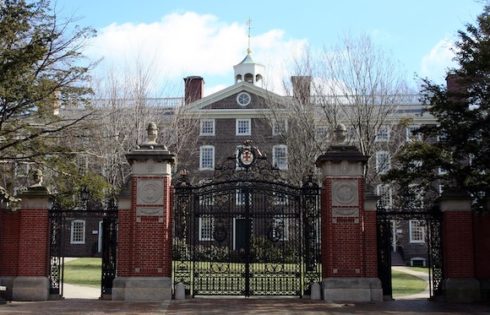You may have heard of “The Intellectual Dark Web,” a loose collection of thinkers across academia, media and art who aren’t satisfied with the increasingly narrow range of acceptable debate in American society, and take their appeals directly to the people, often on YouTube and in podcasts.
But do you know anyone who has been deeply affected by this phenomenon, recently profiled by the dissident liberal Bari Weiss in The New York Times?
We do. He’s our former writer Max Diamond, and he has a new article in The Weekly Standard about how these thinkers have shaped him in ways that his alma mater, Reed College, never did.
Reed did not live up to its reputation as an intellectual wonderland in Diamond’s experience, he writes, describing how watching the videos of University of Toronto psychologist Jordan Peterson and “Factual Feminist” Christina Hoff Sommers, among others, opened his eyes to a new way of thinking.
They didn’t trick him into adopting their positions or indoctrinate him:
While I had intended to go to a liberal arts college in order to become a true free thinker, I found myself intellectually expanded far more by watching many of these thinkers than I did during most of my courses. It wasn’t that I necessarily agreed with Peterson, or Haidt, or Weinstein. But listening to them forced me to question my ideological and intuitive presuppositions. Thereby, they were inspiring me to actually think, and to find my own conclusions without some institutional orthodoxy.
Diamond was drawn to them by their “commitment to intellectual freedom, universal epistemic norms of evidence and reason rather than personal identity or emotion … , and to scientifically informed, civil conversation about polarizing topics like gender, inequality, and freedom.”
Of course, that’s not how illiberal student and faculty activists have seen these thinkers when they come to campus.
Diamond warns that it’s dangerous for activists – and even Weiss herself – to suggest that our culture should reimpose a form of “gatekeepers” to police the boundaries of debate, because it makes us dumber:
The intellectual dark web influenced me less in regard to specific propositions and far more in my ability to reflect upon my own assumptions. … When college protesters silence speakers, the concern is not they have the drawn boundary of reasonable speech too thin, but rather that they are undermining individuals’ ability to become educated: to learn, and to decide for themselves what are reasonable and unreasonable ideas.
Like The College Fix on Facebook / Follow us on Twitter




Add to the Discussion